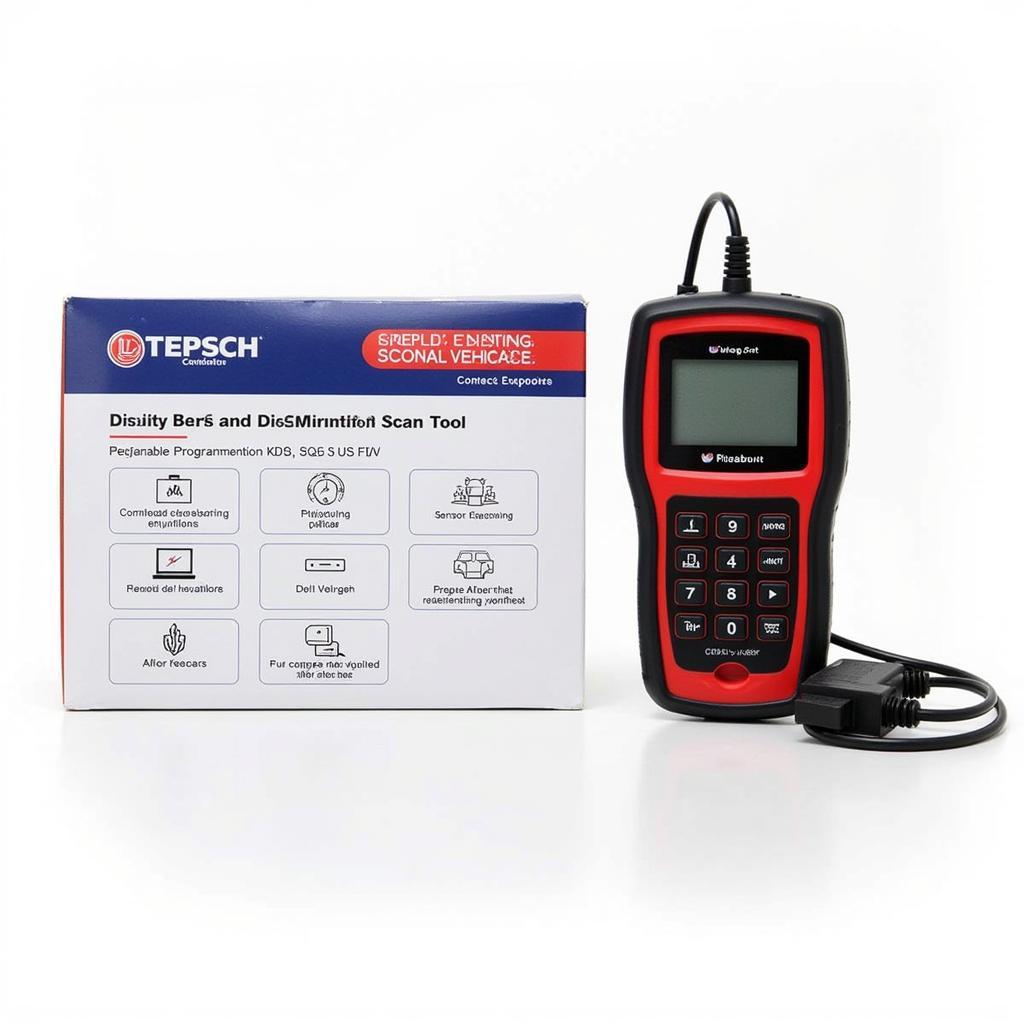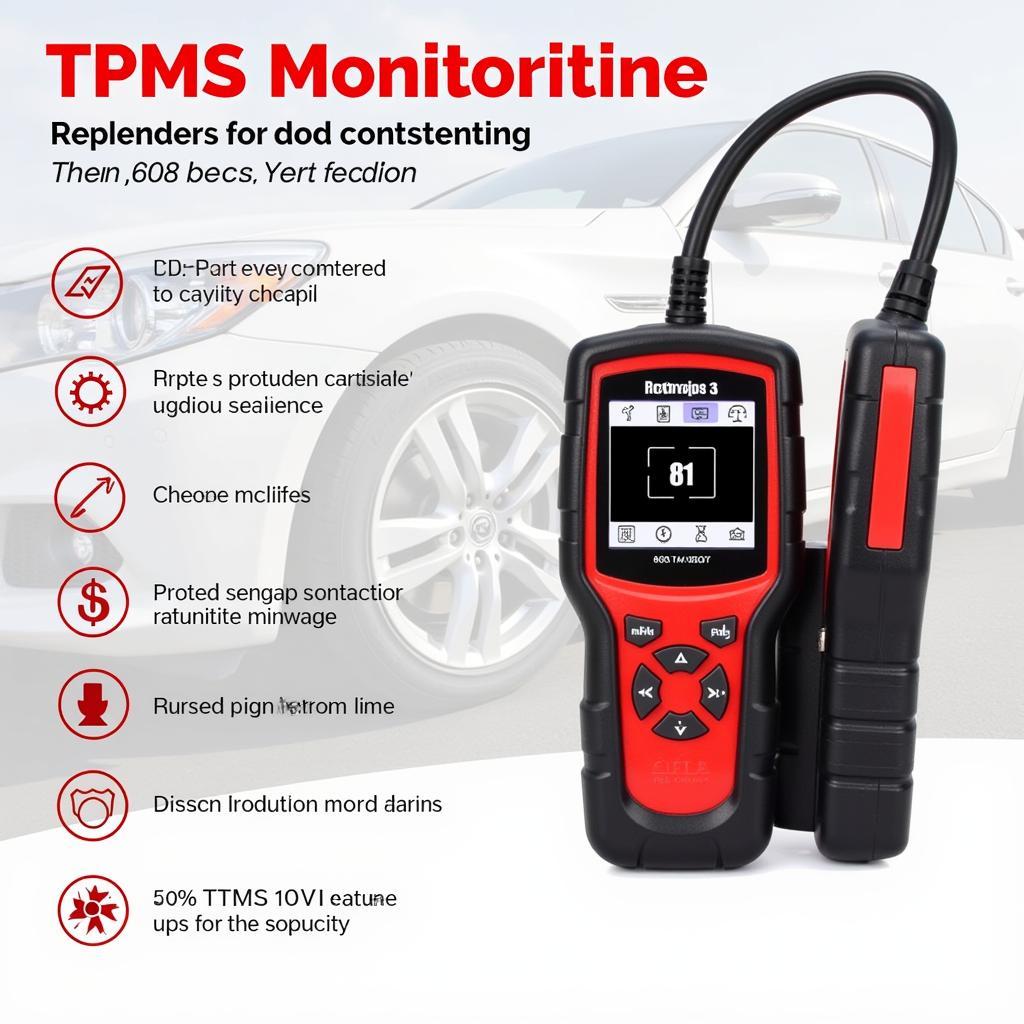TPMS (Tire Pressure Monitoring System) is a critical safety feature in modern vehicles, and maintaining the proper tire pressure is essential for optimal performance, fuel efficiency, and safety. If you are a car owner or mechanic, you need a reliable scan tool to monitor and diagnose TPMS issues. But with so many options available, how do you choose the best scan tool for TPMS?
This comprehensive guide will help you find the perfect TPMS scan tool for your needs, whether you’re a DIY enthusiast or a professional mechanic. We’ll cover everything from the basics of TPMS technology to the top-rated scan tools on the market, as well as the factors you need to consider when making your decision.
Understanding TPMS: The Basics
TPMS technology has come a long way since its introduction. There are two main types of TPMS: direct and indirect.
Direct TPMS
Direct TPMS uses sensors mounted inside each tire to monitor pressure and temperature. These sensors transmit data wirelessly to the vehicle’s computer, which then displays the information on the dashboard. Direct TPMS is considered the most accurate and reliable type of TPMS.
Indirect TPMS
Indirect TPMS relies on the vehicle’s ABS system to monitor tire pressure. By analyzing the difference in wheel speed, the system can detect a tire that is underinflated. While this system is less precise than direct TPMS, it is typically less expensive to implement.
Common TPMS Problems and Solutions
TPMS systems are designed to be reliable, but they can sometimes experience issues. Here are some common TPMS problems:
- Low Tire Pressure: This is the most common TPMS issue. It can be caused by a slow leak, a punctured tire, or simply a drop in temperature.
- Faulty TPMS Sensor: TPMS sensors can fail due to damage, battery depletion, or other issues.
- Vehicle’s TPMS Module Failure: The vehicle’s TPMS module is responsible for receiving and processing data from the TPMS sensors. If this module fails, it can lead to TPMS system errors.
Why You Need a TPMS Scan Tool
A TPMS scan tool is a valuable tool for car owners and mechanics alike. It allows you to:
- Monitor Tire Pressure: Check and adjust tire pressure easily, ensuring optimal performance and fuel efficiency.
- Diagnose TPMS Problems: Identify and troubleshoot issues with TPMS sensors, the TPMS module, or other components.
- Program New Sensors: Add new TPMS sensors to your vehicle.
- Read and Clear Error Codes: Access TPMS error codes and clear them to reset the system.
Choosing the Best Scan Tool for TPMS: Key Factors to Consider
When choosing a TPMS scan tool, consider the following factors:
1. Compatibility
Ensure the scan tool is compatible with your vehicle’s make and model. Some scan tools are compatible with a wide range of vehicles, while others may only work with specific brands or models.
2. Features and Functionality
Consider the features and functionality you need. Some scan tools offer basic TPMS monitoring, while others provide advanced features like sensor programming, relearning, and code reading.
3. Ease of Use
Choose a scan tool that is easy to use and understand, especially if you are not a professional mechanic.
4. Price
TPMS scan tools come in a wide range of prices. Determine your budget before you start shopping.
5. Reliability
Choose a scan tool from a reputable brand known for its reliability and accuracy.
Top-Rated TPMS Scan Tools: A Comprehensive Comparison
We have compiled a list of top-rated TPMS scan tools based on user reviews, functionality, and price.
1.  Advanced TPMS Scan Tool for All Vehicles
Advanced TPMS Scan Tool for All Vehicles
- Features: Sensor programming, relearning, code reading, tire pressure monitoring, and more.
- Pros: Highly versatile, easy to use, and affordable.
- Cons: May not be compatible with all vehicle models.
2.  Professional TPMS Scan Tool for Mechanics
Professional TPMS Scan Tool for Mechanics
- Features: Advanced diagnostics, sensor programming, relearning, code reading, and more.
- Pros: Comprehensive functionality, durable construction, and excellent accuracy.
- Cons: More expensive than basic scan tools.
3.  Affordable TPMS Scan Tool for DIY Enthusiasts
Affordable TPMS Scan Tool for DIY Enthusiasts
- Features: Tire pressure monitoring, code reading, and basic troubleshooting.
- Pros: Affordable, compact, and easy to use.
- Cons: Limited functionality compared to advanced scan tools.
Expert Insights
“When choosing a TPMS scan tool, it’s essential to consider your specific needs and budget,” says John Smith, a certified automotive technician with over 20 years of experience. “For professional mechanics, an advanced scan tool with comprehensive features is a must-have. However, for DIY enthusiasts, a basic scan tool with tire pressure monitoring and code reading capabilities might be more than enough.”
“Don’t forget to check the compatibility of the scan tool with your vehicle before making a purchase,” adds Sarah Lee, a renowned automotive expert. “You don’t want to invest in a scan tool that doesn’t work with your car.”
Conclusion
Choosing the best scan tool for TPMS can seem overwhelming, but by considering the key factors and comparing different options, you can find the perfect tool for your needs. Whether you are a car owner or a mechanic, investing in a quality TPMS scan tool will ensure that you have the right tools to keep your vehicle safe and running smoothly.
FAQ
-
Q: What is the best TPMS scan tool for DIY enthusiasts?
A: The
 Affordable TPMS Scan Tool for DIY Enthusiasts is a great option for DIY enthusiasts. It offers basic functionality at an affordable price.
Affordable TPMS Scan Tool for DIY Enthusiasts is a great option for DIY enthusiasts. It offers basic functionality at an affordable price. -
Q: What is the best TPMS scan tool for professional mechanics?
A: The
 Professional TPMS Scan Tool for Mechanics is a great option for professional mechanics, offering advanced diagnostics and robust build quality.
Professional TPMS Scan Tool for Mechanics is a great option for professional mechanics, offering advanced diagnostics and robust build quality. -
Q: How often should I check my tire pressure?
A: It’s recommended to check your tire pressure at least once a month.
-
Q: What happens if I ignore a low tire pressure warning?
A: Driving with low tire pressure can lead to tire damage, reduced fuel efficiency, and even accidents.
-
Q: How can I tell if my TPMS sensor is faulty?
A: If your TPMS system displays a persistent error message, or if your tire pressure readings seem inaccurate, the sensor may be faulty.
Situations where TPMS scan tools are helpful
- Check Tire Pressure: When you need to check your tire pressure to make sure it’s within the recommended range.
- Diagnose TPMS Problems: When your car’s TPMS system is displaying an error message, you can use a TPMS scan tool to diagnose the problem.
- Program New Sensors: When you need to replace a TPMS sensor, you’ll need to program the new sensor to your car’s system.
- Reset TPMS System: After changing a tire, you may need to reset the TPMS system to clear any error messages.
- Check TPMS Sensor Battery Life: TPMS sensors have batteries that eventually need to be replaced. You can use a TPMS scan tool to check the battery life of your sensors.
Other related articles
- [Link to article about how to check your tire pressure]
- [Link to article about how to replace a TPMS sensor]
- [Link to article about how to diagnose TPMS problems]
If you have any questions or need further assistance, please feel free to contact us via WhatsApp: +1(641)206-8880, Email: [email protected], or visit our office at 276 Reock St, City of Orange, NJ 07050, United States. We have a team of customer service experts available 24/7 to assist you.


